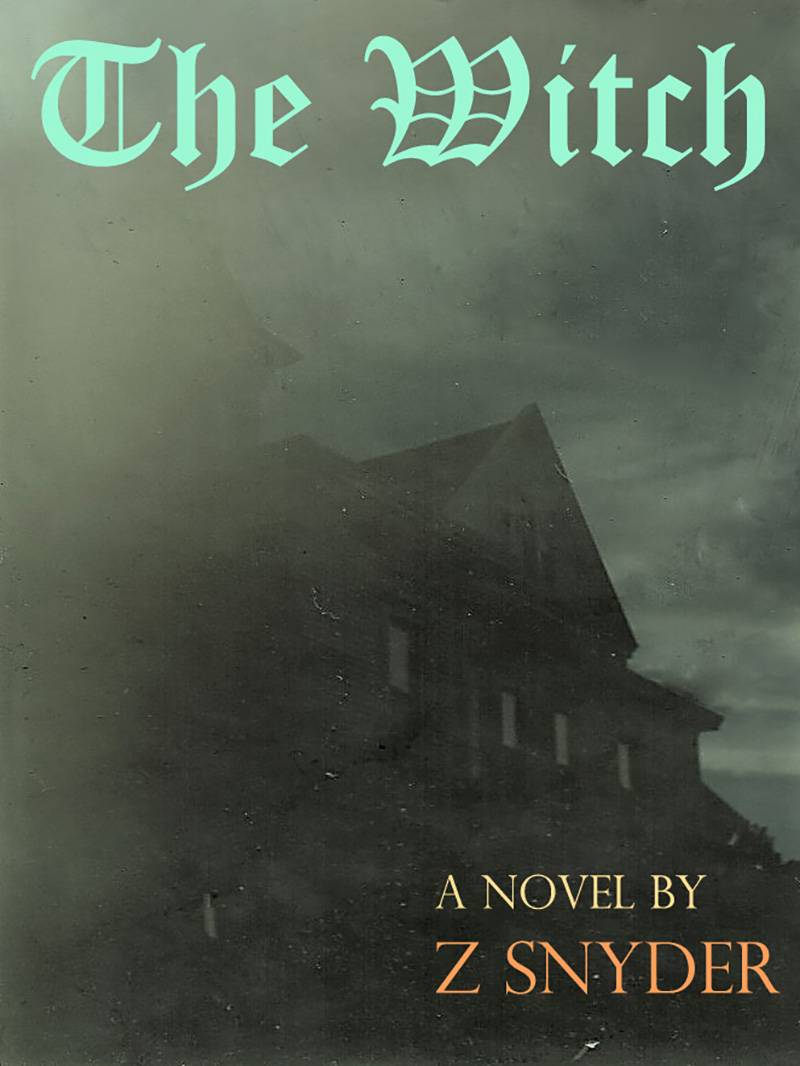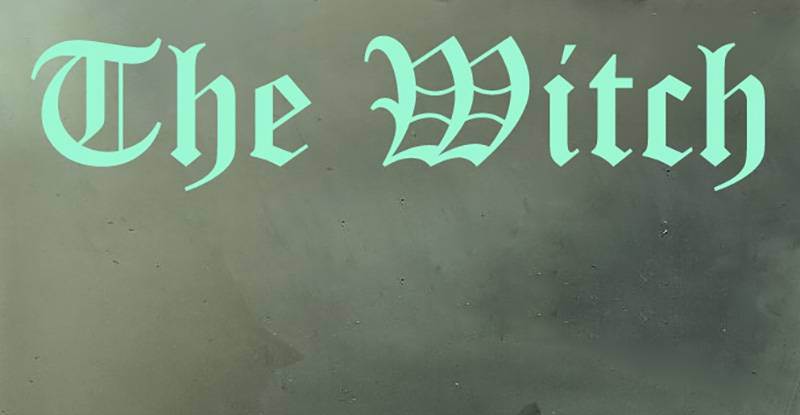Every writer who embarks upon the telling of a supernatural tale must meet the challenge of creating a universe. For fans of this genre, half the fun is in discovering the rules of each new world. Will the vampires have daylight rings or sparkle in the sunlight? How do witches come into their powers? And what forms do those powers take? Do they have a mission? Do they fight for the higher good or for their own best interests?
This reviewer, in her cultural and literary studies life, has long been fascinated (okay, obsessed) with our cultural preoccupation with the supernatural as whole, and the figure of the witch in particular.
Witches are outsiders, and as such they are the ideal metaphor for the cultural and psychological concerns of the moment. As a narrative trope, witches are the negative space into which we can project our deepest desires and fears. They can be whoever we need them to be. That is part of their narrative magic.
For local writer Z Snyder, creating the world of The Witch series, was a revolutionary act, a queering of the supernatural.
“I wanted a universe where no matter what was wrong or what was happening around them, at no point is anyone questioned or judged regarding their sexuality. There’s no “coming out”, because it’s just accepted that these characters are queer, and no one’s bothered by that in the slightest. I just wanted a universe that was safe if in no other way, than just safe to be queer and exist as such.”
The dramatic tension in supernatural thrillers often stems from watching powerful do-gooders save the world from evil. As the genre has expanded and grown more sophisticated in its morality, the struggles have grown more complicated. Joss Whedon’s creation of the character Angel, a vampire with a soul, muddied the longstanding moral positions. The Charmed universe, both in its original, and to a larger degree in its reboot, frequently depicts the witches at odds with their council of elders.
Not only does this continue to upend simplistic dichotomies of good versus evil, but also suggests larger issues of authority, power, and free will. Much of the witch’s narrative power is built on the assumption that there really is no such thing as a witch. Yet in 2019, any Google search or trip to a New Age/Pagan/Wiccan store will prove otherwise. And that just makes things even more interesting. But more about that another time.
While queer characters have appeared in several notable supernatural books, TV, and film series, their sexuality is used to serve a particular narrative arc, to explore notions of difference (The House of Night series), or to brand themselves as inclusive and feminist (e.g. the Charmed reboot). And while lesbian witches are among some of the most powerful supernatural figures we’ve encountered (Willow and Tara in the Buffyverse and, decades later, Em and Sarah in Deborah Harkness’s All Souls Trilogy, their sexuality is never a given.
Snyder’s universe is morally complex and full of relatable quandries of trust placed in the wrong people. And while Snyder’s witch Marisa is neither a good witch nor a bad one—yes, it’s complicated—she is bold, queer, honest, funny, gifted, and smart. She does what she has to do and she never stops being who she is. This makes her the perfectly imperfect witch for our time.
The choice of close-third person narration was a smart one. We stay especially close to Marisa’s thoughts and this allows Snyder to build in supernatural backstory details (e.g. Marisa’s age and powers) deftly, thereby making theses feel like the simple facts of Marisa’s life, and creating sympathy for a character who is morally complex. As the narrative lens shifts, we also spend a good amount of time inside the conflicted and confusing landscape of Kylee’s mind, which allows us to experience the damage done by the bible-thumping members of “The Group” who use Kylee as a pawn in their fight against Marisa’s mother, and later, against Marisa herself.

I hesitate to delve too deeply into the plot details, because for a page-turner like this, spoilers are deadly. Instead, I’ll tease you with this look at The Witch’s craft (sorry, I couldn’t resist).
The Witch begins with a fairly standard narrative trope in witch-lit. The prodigial daughter returns (yes, it’s almost always a daughter) to her hometown upon the death of her mother. We are teased with a sense that her leave taking represented either a rejection of her family’s traditions and beliefs, a rejection of her powers, a rejection of small-town bigotry in said hometown, or some interesting combination of all three. The homecoming is never easy and never without incident.
One of the most delightful elements of Snyder’s tale is the focus on the home in this journey of homecoming. Homes are of great import to many fictional and non-fictional spell-casters. The family home at the center of the Beautiful Creatures series transformed according to the mood of its members. While in the All Souls Triology, the Bishop house in upstate New York is a living, breathing entity that intuits the arrival of guests and remodels itself to accommodate them, Marisa’s home functions similarly, mirroring her mother’s decline and later Marisa’s own vitality.
Like Piper Halliwell (Charmed) and any of the Owens witches (Practical Magic), Marisa is often found in the kitchen where she moves seemlessly between preparing spells and gourmet meals. The detail given to the later serves to ground her and the novel in the sense and in a form of tangible reality that makes her and the magical world she lives in, seem familiar and down-to-earth.
There is much to enjoy here for fans of witch-lit and queer characters. Kudos to Snyder for creating a world where queer people just are who they are. This is a significant gift to the witch-lit cannon and to queer readers.
Finally, a quick note for those of us who may have worked as copy editors or English teachers, where the uncovering of errors typographical or grammatical becomes an occupational hazard, Snyder is quite frank about the decision to move forward with the publication of an imperfect manuscript. This is even addressed in the FAQ section of the book series website. Snyder is a storyteller, a good one, but admittedly not an editor. When faced with the decision to move forward or wait for the editing services they could not afford, they decided to publish. And while you may disagree, I’ve thought long and hard about this and here’s where I’ve landed.
If you are spearheading a revolution, as Snyder clearly is, you are likely operating from the outside, where access to the finery of traditional publication is not an option. I’ll take the imperfect version now, thank you very much. In fact, several chapters in, what could be read as imperfect began to feel like natural speech and stream of consciousness, both of which served the story well by keeping us close to the characters and firmly rooted inside their world. Perhaps more importantly, we need this book now. Some of us more than others.
As our culture shifts backward into unprecidented levels of homophobia, hate speech, and violence against queer and trans people, Snyder’s work will shine as perfectly imperfect antedote to hate. It does not place its characters on pedestals. It places them at the center or a complex tale just as they are. And I’ll give that four and a half out of five broomsticks any day.
The novel ends in that sudden way that season finales often do. But the good news is, Snyder is currently hard at work on the next installment of what promises to be a four-part series. So go ahead and get yourself attached to this universe, looks like we’ll be able to enjoy living in it for a good long while.
Order your copy of The Witch here
Check out the official Witch Book series website, or luxuriate in Snyder’s gorgeously dark and moody series-inspired photographs on Instagram or Facebook.
Help support the series on Patreon
Photo of The Witch cover from Z Snyder’s The Witch Book’s website








